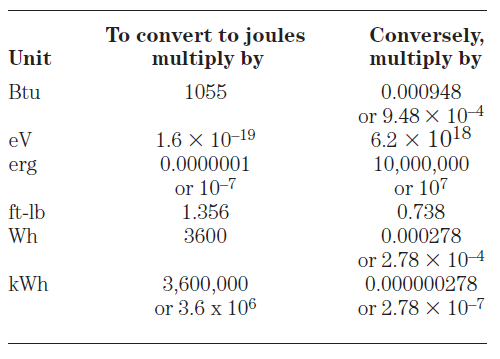
تاريخ الفيزياء

علماء الفيزياء


الفيزياء الكلاسيكية

الميكانيك

الديناميكا الحرارية


الكهربائية والمغناطيسية

الكهربائية

المغناطيسية

الكهرومغناطيسية


علم البصريات

تاريخ علم البصريات

الضوء

مواضيع عامة في علم البصريات

الصوت


الفيزياء الحديثة


النظرية النسبية

النظرية النسبية الخاصة

النظرية النسبية العامة

مواضيع عامة في النظرية النسبية

ميكانيكا الكم

الفيزياء الذرية

الفيزياء الجزيئية


الفيزياء النووية

مواضيع عامة في الفيزياء النووية

النشاط الاشعاعي


فيزياء الحالة الصلبة

الموصلات

أشباه الموصلات

العوازل

مواضيع عامة في الفيزياء الصلبة

فيزياء الجوامد


الليزر

أنواع الليزر

بعض تطبيقات الليزر

مواضيع عامة في الليزر


علم الفلك

تاريخ وعلماء علم الفلك

الثقوب السوداء


المجموعة الشمسية

الشمس

كوكب عطارد

كوكب الزهرة

كوكب الأرض

كوكب المريخ

كوكب المشتري

كوكب زحل

كوكب أورانوس

كوكب نبتون

كوكب بلوتو

القمر

كواكب ومواضيع اخرى

مواضيع عامة في علم الفلك

النجوم

البلازما

الألكترونيات

خواص المادة


الطاقة البديلة

الطاقة الشمسية

مواضيع عامة في الطاقة البديلة

المد والجزر

فيزياء الجسيمات


الفيزياء والعلوم الأخرى

الفيزياء الكيميائية

الفيزياء الرياضية

الفيزياء الحيوية

الفيزياء العامة


مواضيع عامة في الفيزياء

تجارب فيزيائية

مصطلحات وتعاريف فيزيائية

وحدات القياس الفيزيائية

طرائف الفيزياء

مواضيع اخرى
Other energy units
المؤلف:
Stan Gibilisco
المصدر:
Teach Yourself Electricity and Electronics
الجزء والصفحة:
33
3-4-2021
2836
Other energy units
As said before, physicists prefer to use the joule, or watt second, as their energy unit. This is the standard unit for scientific purposes. Another unit is the erg, equivalent to one ten-millionth (0.0000001) of a joule. This is said to be roughly the amount of energy needed by a mosquito to take off after it has bitten you (not including the energy needed for the bite itself). The erg is used in lab experiments involving small amounts of expended energy.
You have probably heard of the British thermal unit (Btu), equivalent to 1055 joules. This is the energy unit most often used to indicate the cooling or heating capacity of air-conditioning equipment. To cool your room from 85 to 78 degrees needs a certain amount of energy, perhaps best specified in Btu. If you are getting an air conditioner or furnace installed in your home, an expert will come look at your situation, and determine the size of air conditioning/heating unit, in Btu, that best suits your needs. It doesn’t make any sense to get one that is way too big; you’ll be wasting your money. But you want to be sure that it’s big enough—or you’ll also waste money because of inefficiency and possibly also because of frequent repair calls.
Physicists also use, in addition to the joule, a unit of energy called the electron volt (eV). This is an extremely tiny unit of energy, equal to just 0.00000000000000000016 joule (there are 18 zeroes after the decimal point and before the 1). The physicists write 1.6 × 10–19 to represent this. It is the energy gained by a single electron in an electric field of 1 V. Atom smashers are rated by millions of electron volts (MeV) or billions of electron volts (GeV) of energy capacity. In the future you might even hear of a huge linear accelerator, built on some vast prairie, and capable of delivering trillions of electron volts (TeV).
Another energy unit, employed to denote work, is the foot pound (ft-lb). This is the work needed to raise a weight of one pound by a distance of one foot, not including any friction. It’s equal to 1.356 joules.
All of these units, and conversion factors, are given in Table 1. Kilowatt hours and watt hours are also included in this table. You don’t really need to worry about the exponential notation, called scientific notation, here. In electricity and electronics, you need to be concerned only with the watt hour and the kilowatt hour for most purposes, and the conversions hardly ever involve numbers so huge or so miniscule that you’ll need scientific notation.
Table 1. Energy units.

 الاكثر قراءة في الألكترونيات
الاكثر قراءة في الألكترونيات
 اخر الاخبار
اخر الاخبار
اخبار العتبة العباسية المقدسة

الآخبار الصحية















 قسم الشؤون الفكرية يصدر كتاباً يوثق تاريخ السدانة في العتبة العباسية المقدسة
قسم الشؤون الفكرية يصدر كتاباً يوثق تاريخ السدانة في العتبة العباسية المقدسة "المهمة".. إصدار قصصي يوثّق القصص الفائزة في مسابقة فتوى الدفاع المقدسة للقصة القصيرة
"المهمة".. إصدار قصصي يوثّق القصص الفائزة في مسابقة فتوى الدفاع المقدسة للقصة القصيرة (نوافذ).. إصدار أدبي يوثق القصص الفائزة في مسابقة الإمام العسكري (عليه السلام)
(نوافذ).. إصدار أدبي يوثق القصص الفائزة في مسابقة الإمام العسكري (عليه السلام)


















